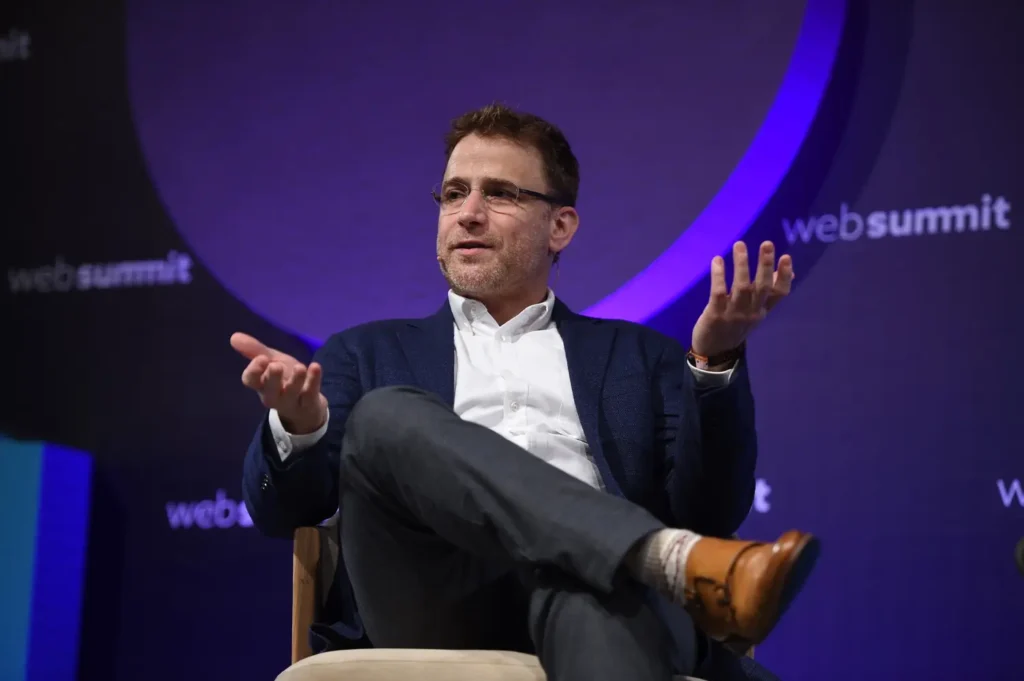Why Age Is Just a Number in Tech
The tech world often feels like a young person’s game, with stories of college dropouts building billion-dollar empires dominating headlines. However, some of the most successful tech companies were actually founded by entrepreneurs who started their journey well after turning 30. These inspiring founders prove that experience, wisdom, and timing can be just as valuable as youthful energy when it comes to building groundbreaking companies.
The Power of Starting Later
Starting a tech company after 30 comes with unique advantages that younger entrepreneurs might lack. Life experience provides deeper understanding of real-world problems, while established professional networks open doors that might otherwise remain closed. Additionally, older founders often have more financial stability and clearer vision of what they want to achieve.
1. Lynda Weinman

The Online Education Pioneer
The Educator Who Revolutionized Digital Learning
Lynda Weinman transformed her passion for teaching web design into a revolutionary online education platform that would eventually sell for $1.5 billion.
How She Started Her Journey
Weinman began her entrepreneurial path at age 40 after working as a graphic designer and educator for years. She noticed a growing need for accessible digital design education and decided to fill that gap through innovative online learning.
Building the Lynda.com Empire
In 1995, Weinman co-founded Lynda.com with her husband Bruce Heavin, creating one of the first comprehensive online learning platforms. The company started modestly but grew exponentially by focusing on high-quality video tutorials and practical skills training. LinkedIn acquired the platform in 2015 for a staggering $1.5 billion, making it one of the most successful EdTech acquisitions in history.
Interesting Facts About Her Entrepreneurial Journey
- Author first: Before founding Lynda.com, she wrote several bestselling books about web design and digital graphics
- Teaching background: Her experience as a classroom instructor heavily influenced the platform’s user-friendly approach
- Pioneer mindset: She was among the first entrepreneurs to recognize the potential of subscription-based online education
- Quality focus: Insisted on professional production values when most online content was amateur-level
2. Bob Parsons

The Marine-Turned-Domain King
The Disciplined Veteran Who Conquered the Web
Bob Parsons leveraged his military discipline and business acumen to build GoDaddy into the world’s largest domain registrar.
How He Started His Journey
Parsons launched his tech career at age 47 after selling his previous financial software company. His military background and proven business experience gave him the confidence to tackle the emerging internet domain market.
Creating the GoDaddy Success Story
In 1997, Parsons founded GoDaddy (originally called Jomax Technologies) with a simple mission: make domain registration accessible and affordable for everyone. Through aggressive marketing, competitive pricing, and customer-focused service, GoDaddy became the world’s largest domain registrar. The company went public and reached billions in revenue under his leadership.
Interesting Facts About His Entrepreneurial Journey
- Military precision: Applied Marine Corps discipline to business operations and company culture
- Bold marketing: Known for controversial and memorable Super Bowl commercials that built brand recognition
- Customer obsession: Pioneered 24/7 customer support in the domain registration industry
- Serial entrepreneur: Founded multiple successful companies before and after GoDaddy
- Philanthropy focus: Used business success to fund veteran causes and educational initiatives
3. Shlomo Kramer

The Cybersecurity Visionary
The Security Expert Who Predicted Digital Threats
Shlomo Kramer foresaw the critical importance of cybersecurity and built multiple billion-dollar companies to address emerging digital threats.
How He Started His Journey
Kramer began his entrepreneurial journey at age 32 after serving in elite Israeli military intelligence units. His deep understanding of security threats and technical expertise positioned him perfectly for the emerging cybersecurity market.
Building Multiple Security Giants
In 1993, Kramer co-founded Check Point Software, which became one of the first major firewall companies and revolutionized network security. After Check Point’s success, he founded Imperva in 2002, focusing on database and application security. Both companies achieved billion-dollar valuations and became industry leaders in their respective cybersecurity niches.
Interesting Facts About His Entrepreneurial Journey
- Military intelligence background: Leveraged classified security knowledge to anticipate commercial cybersecurity needs
- Repeat success: One of the few entrepreneurs to build multiple billion-dollar cybersecurity companies
- Timing master: Consistently entered cybersecurity markets just before they exploded in growth
- Technical depth: Maintained hands-on involvement in product development despite executive responsibilities
- Industry influence: Helped shape modern cybersecurity standards and best practices
4. Reed Hastings

The Subscription Service Revolutionary
The Visionary Who Transformed Entertainment Forever
Reed Hastings revolutionized how the world consumes entertainment by building Netflix into a global streaming powerhouse.
How He Started His Journey
Hastings launched Netflix at age 37 after successfully selling his previous software company, Pure Software. His experience with subscription business models and frustration with traditional video rental late fees sparked the Netflix concept.
Creating the Netflix Phenomenon
In 1997, Hastings co-founded Netflix as a DVD-by-mail service, eliminating late fees and offering unlimited rentals for a monthly subscription. The company later pivoted to streaming video and original content production, fundamentally changing the entertainment industry. Under his leadership, Netflix grew from a startup to a $240+ billion company with over 230 million subscribers worldwide.
Interesting Facts About His Entrepreneurial Journey
- Late fee inspiration: Created Netflix after being charged a $40 late fee for a Blockbuster rental
- Pivot master: Successfully transitioned the company from DVD-by-mail to streaming to content creation
- Data-driven: Pioneered the use of viewing data to guide content creation and recommendations
- Global vision: Expanded Netflix to over 190 countries, creating truly global entertainment platform
- Algorithm innovation: Developed sophisticated recommendation systems that became industry standard
5. Stewart Butterfield

The Gaming Failure Who Created Workplace Success
The Pivoting Master Who Turned Setbacks into Success
Stewart Butterfield transformed failed gaming ventures into two of the most successful digital platforms of the modern era.
How He Started His Journey
Butterfield began his major entrepreneurial journey at age 31 when his online gaming company wasn’t gaining traction. Instead of giving up, he pivoted the internal communication tool his team had built into a standalone product.
Building Slack and Flickr Success Stories
Butterfield’s first major success came with Flickr, a photo-sharing platform that emerged from a failed gaming project and sold to Yahoo for $35 million. Years later, he repeated this pivot strategy by transforming another gaming company’s internal messaging system into Slack, the workplace communication platform that sold to Salesforce for $27.7 billion in 2021.
Interesting Facts About His Entrepreneurial Journey
- Double pivot success: Both major successes came from pivoting failed gaming companies
- Internal tools focus: Recognized that internal productivity tools could become billion-dollar businesses
- User experience obsession: Prioritized intuitive design and user experience over technical complexity
- Timing expertise: Launched both Flickr and Slack at perfect moments in their respective market cycles
- Philosophy background: His academic study of philosophy influenced his human-centered approach to product design
- Remote work pioneer: Built Slack as a remote-first company, predicting the future of work
The Wisdom of Starting Later
These five entrepreneurs demonstrate that starting a tech company after 30 can actually be an advantage. Their stories share common themes: deep industry knowledge, financial stability, professional networks, and most importantly, the wisdom to solve real problems that matter to people.
Success in entrepreneurship isn’t just about having a great idea—it’s about having the experience, resources, and persistence to execute that idea effectively. These founders prove that the combination of maturity and innovation can create some of the most impactful companies in the world. Whether you’re 30, 40, or beyond, remember that your next great venture might be just one pivot away.

